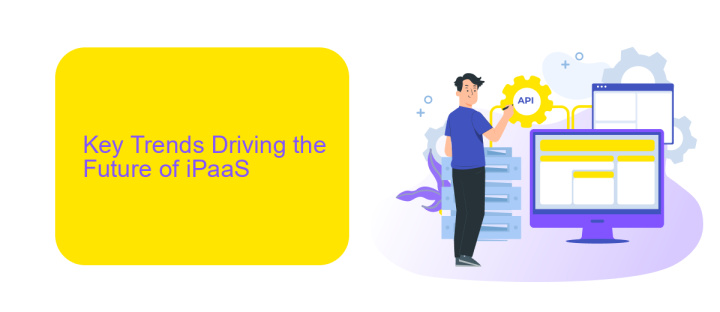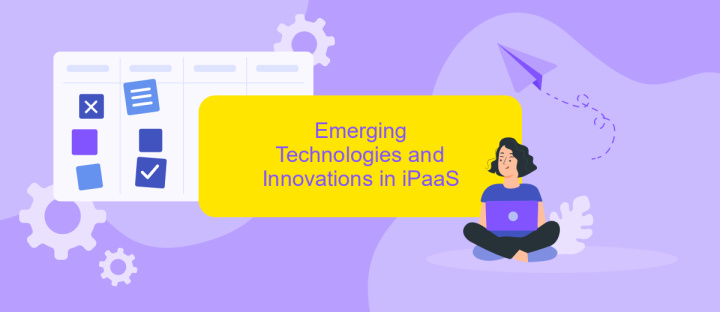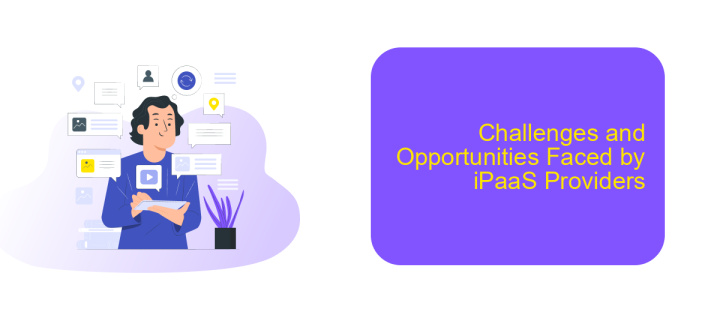Future of iPaaS
In an era where seamless integration is paramount, the future of Integration Platform as a Service (iPaaS) holds transformative potential. As businesses increasingly rely on diverse cloud services, iPaaS solutions are evolving to offer more robust, scalable, and intelligent integration capabilities. This article explores emerging trends, technological advancements, and the pivotal role iPaaS will play in shaping the digital landscape.
Introduction: Defining iPaaS and Its Current Landscape
Integration Platform as a Service (iPaaS) is a suite of cloud services that enables the development, execution, and governance of integration flows connecting any combination of on-premises and cloud-based processes, services, applications, and data. iPaaS solutions provide a centralized platform for managing integrations, making it easier for organizations to connect disparate systems and streamline workflows.
- Simplifies integration processes through a user-friendly interface.
- Supports a wide range of applications and data sources.
- Offers scalability to accommodate growing business needs.
- Ensures data security and compliance.
- Provides real-time monitoring and analytics.
Currently, the iPaaS landscape is evolving rapidly, driven by the increasing demand for seamless integration across various platforms. Services like ApiX-Drive are at the forefront, offering robust solutions for automating and managing integrations. By leveraging such platforms, businesses can enhance operational efficiency, reduce manual errors, and achieve greater agility in responding to market changes.
Key Trends Driving the Future of iPaaS

One of the key trends driving the future of iPaaS is the increasing demand for seamless integration across diverse applications and data sources. As businesses continue to adopt numerous cloud-based solutions, the need for efficient and automated integration platforms like ApiX-Drive becomes critical. ApiX-Drive allows organizations to effortlessly connect various applications, enabling smooth data flow and real-time synchronization, which enhances operational efficiency and decision-making processes.
Another significant trend is the growing emphasis on low-code and no-code platforms within the iPaaS landscape. These platforms empower non-technical users to create and manage integrations without extensive coding knowledge. ApiX-Drive, for example, offers a user-friendly interface that simplifies the integration process, making it accessible to a broader audience. This democratization of integration capabilities not only accelerates digital transformation but also reduces dependency on IT departments, fostering innovation and agility within organizations.
Emerging Technologies and Innovations in iPaaS

The future of iPaaS (Integration Platform as a Service) is being shaped by emerging technologies and innovations that enhance its capabilities and efficiency. As businesses seek more seamless and automated integration solutions, new trends and tools are coming to the forefront, revolutionizing the iPaaS landscape.
- Artificial Intelligence and Machine Learning: These technologies are being integrated into iPaaS platforms to enable predictive analytics, intelligent data mapping, and automated decision-making processes.
- API Management: Advanced API management tools, such as ApiX-Drive, are simplifying the creation and monitoring of integrations, allowing businesses to connect various applications without extensive coding.
- Low-Code/No-Code Platforms: These platforms empower non-technical users to build and manage integrations through intuitive interfaces, reducing dependency on IT departments.
- Edge Computing: By processing data closer to its source, edge computing enhances the speed and efficiency of data integration, particularly for IoT applications.
These innovations are not only making iPaaS more accessible but also more powerful, enabling businesses to streamline operations and enhance productivity. As the technology evolves, we can expect even more advanced features and tools to emerge, further transforming the way organizations handle integrations.
Challenges and Opportunities Faced by iPaaS Providers

iPaaS providers face numerous challenges as they strive to offer seamless integration solutions in an ever-evolving technological landscape. One of the primary obstacles is ensuring compatibility across a diverse range of applications and platforms, which requires constant updates and adaptations. Security is another critical concern, as data breaches and cyber threats become increasingly sophisticated.
Despite these challenges, there are significant opportunities for iPaaS providers to innovate and expand their services. The growing demand for cloud-based solutions and the increasing adoption of remote work environments create a fertile ground for iPaaS growth. Providers like ApiX-Drive, which offer user-friendly integration setups, can capitalize on this trend by making it easier for businesses to connect their various applications seamlessly.
- Expanding market for cloud-based solutions
- Increased need for remote work integrations
- Opportunities for enhanced security measures
- Potential for AI-driven automation in integration processes
In conclusion, while iPaaS providers face significant challenges, the opportunities for growth and innovation are abundant. By focusing on compatibility, security, and user-friendly solutions like those offered by ApiX-Drive, providers can meet the evolving needs of businesses and thrive in the competitive landscape.
Conclusion: The Future Outlook and Implications of iPaaS Evolution
The evolution of iPaaS (Integration Platform as a Service) is poised to significantly transform the landscape of digital integration. As businesses increasingly rely on diverse applications and data sources, the demand for seamless and efficient integration solutions continues to grow. iPaaS platforms, like ApiX-Drive, are at the forefront of this revolution, offering user-friendly interfaces and robust capabilities to streamline complex integration processes. These platforms enable organizations to automate workflows, reduce manual intervention, and enhance data consistency across various systems.
Looking ahead, the future of iPaaS will likely see further advancements in AI and machine learning, enabling even more intelligent and adaptive integration solutions. This evolution will empower businesses to respond more swiftly to market changes and technological advancements. Additionally, as data security and compliance become increasingly critical, iPaaS providers will need to prioritize these aspects to ensure trust and reliability. Overall, the continuous development of iPaaS will play a pivotal role in driving digital transformation and operational efficiency across industries.


FAQ
What is the future of iPaaS?
How will AI impact iPaaS?
What are the key benefits of using iPaaS for businesses?
How can businesses ensure the security of their data when using iPaaS?
What should businesses look for when selecting an iPaaS provider?
Apix-Drive is a simple and efficient system connector that will help you automate routine tasks and optimize business processes. You can save time and money, direct these resources to more important purposes. Test ApiX-Drive and make sure that this tool will relieve your employees and after 5 minutes of settings your business will start working faster.

